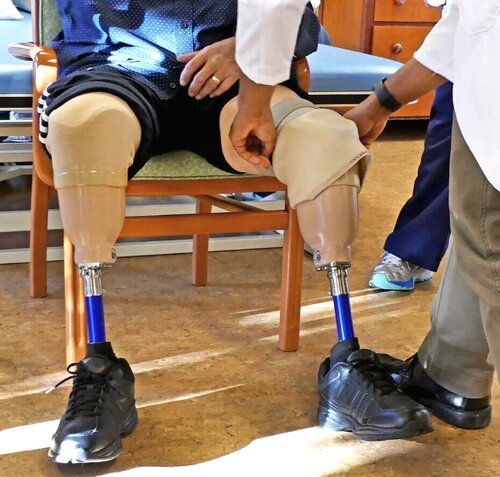
Living with diabetes requires a multifaceted approach to care, and one often overlooked aspect is hand dexterity.
The ability to administer insulin and other diabetes medications accurately is a critical part of managing the condition. Our Occupational Therapy team will explore the importance of hand dexterity for people with diabetes and offer tips and strategies for maintaining it.
Why Hand Dexterity Matters
Hand dexterity refers to the skill and coordination of your hand movements. For people with diabetes, good hand dexterity is essential for several reasons:
Accurate Medication Administration: Administering insulin or other medications accurately is crucial for maintaining stable blood sugar levels. Precise dosing relies on the ability to handle syringes, pens, or other delivery devices with control.
Safety: A steady hand is essential to prevent accidental needle sticks or incorrect medication administration. These mistakes can lead to blood sugar fluctuations and complications.
Consistency: To manage diabetes effectively, you must follow a routine that often includes multiple daily injections or medication doses. Good hand dexterity ensures you can perform these tasks consistently.

Tips for Maintaining Hand Dexterity
1. Hand Exercises: Incorporate hand exercises into your daily routine to strengthen and maintain dexterity. Simple exercises like finger tapping, squeezing a stress ball, or using hand putty can be highly beneficial.
2. Finger Mobility: Perform regular finger mobility exercises to keep your fingers flexible. These exercises can involve gentle stretching, making circles with your fingers, or touching your fingers to your thumb.
3. Handwashing: Maintaining hand hygiene is crucial for diabetics, but it can also serve as an opportunity to practice dexterity. Try different handwashing techniques to improve fine motor skills.
4. Using Assistive Devices: If you find it challenging to administer insulin or medications due to hand dexterity issues, consider using assistive devices like insulin pens or syringe magnifiers. These tools make the process easier and more precise.
5. Proper Needle Handling: Pay attention to how you handle needles and other equipment. Ensure a secure grip on syringes or pens to avoid mishaps and maintain control during injections.
Hand dexterity may not be a topic that diabetics frequently consider, but it plays a vital role in effectively managing the condition.
Accurate medication administration is crucial for maintaining stable blood sugar levels and preventing complications. By focusing on exercises, using assistive devices, and maintaining proper hand hygiene, you can ensure your hand dexterity remains in top shape.
If you encounter challenges, don’t hesitate to seek guidance from an Occupational Therapist. In doing so, you’ll be better equipped to manage your diabetes and lead a healthy, fulfilling life.






